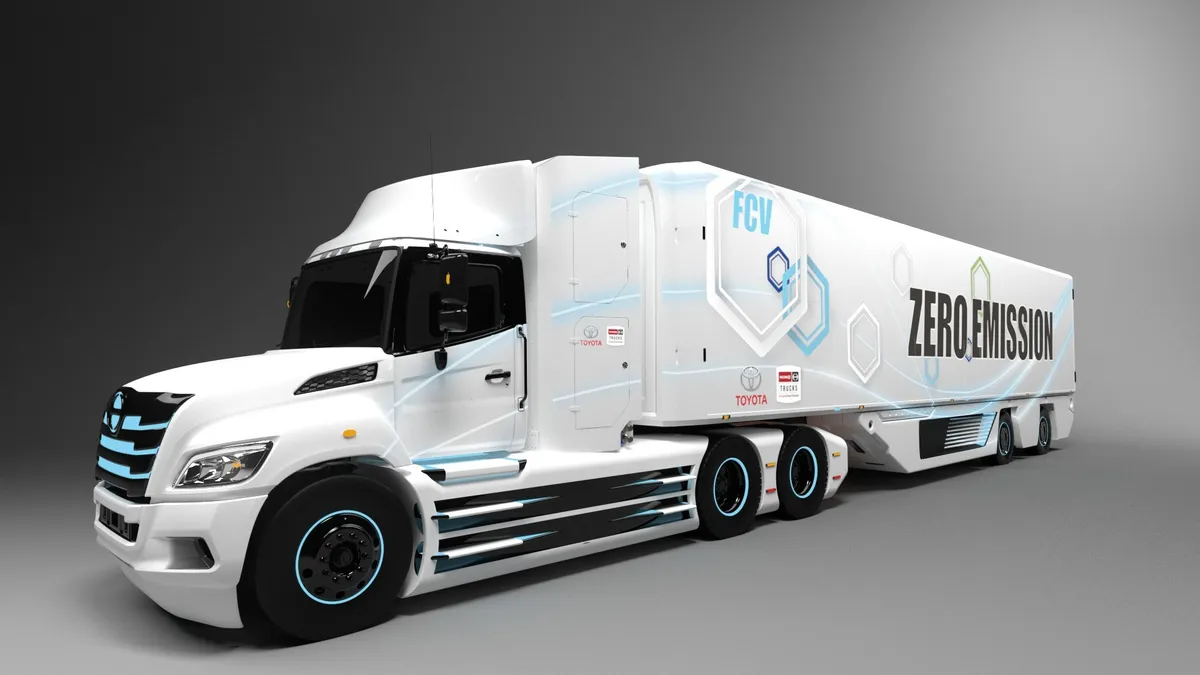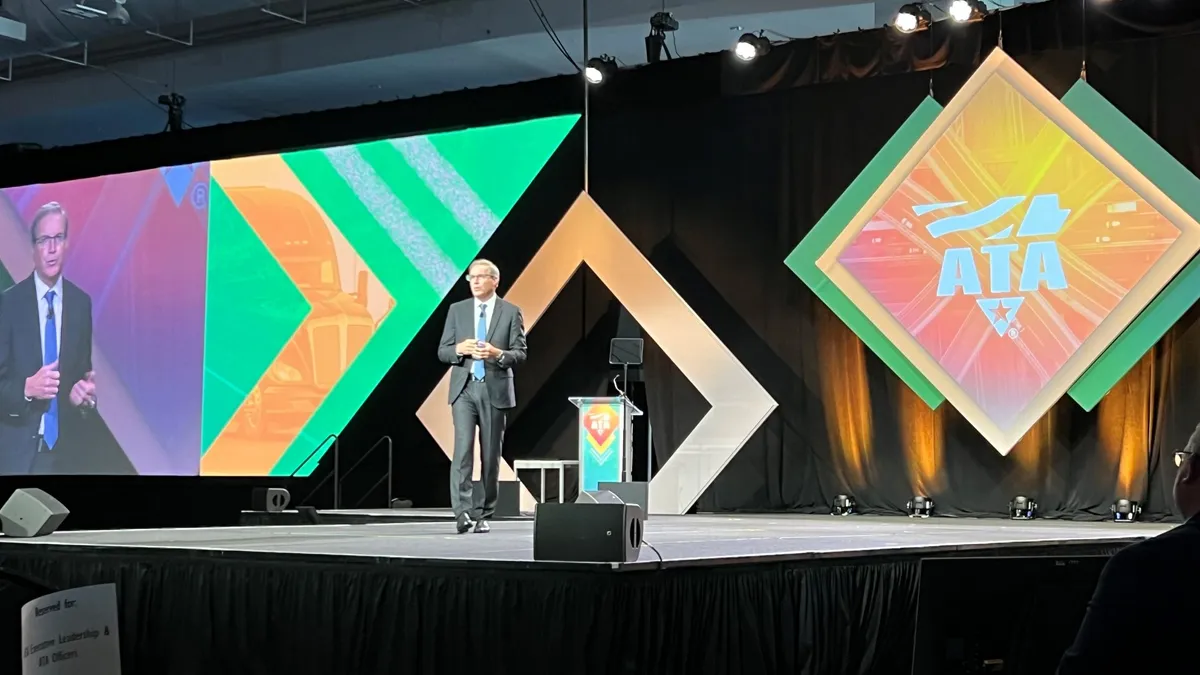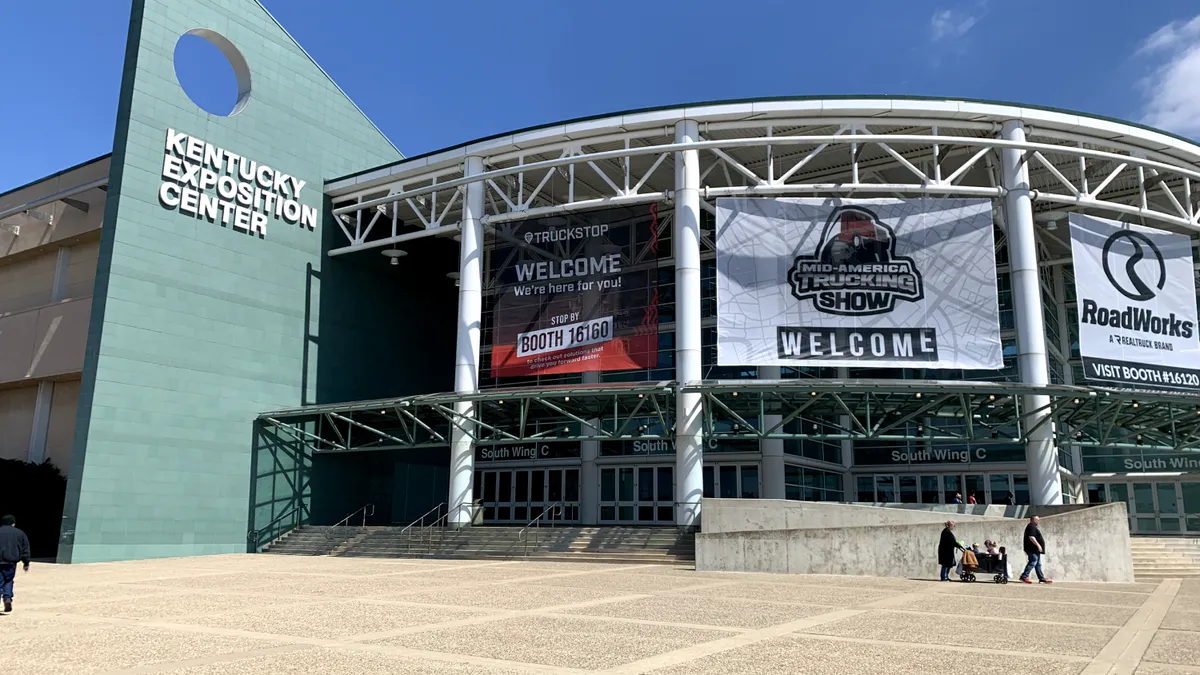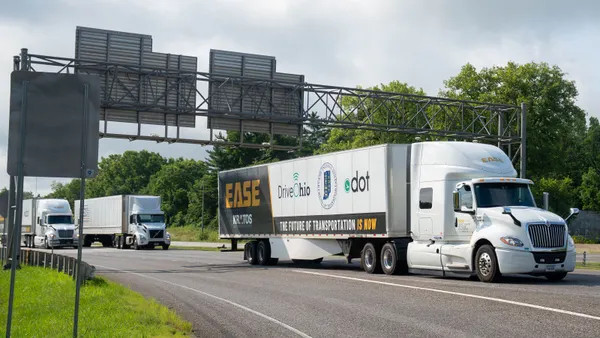Dive Brief:
- Toyota and Hino Trucks are developing their first Class 8 hydrogen fuel-cell electric truck for the North American market, the OEMs said on Monday.
- Toyota will offer up the fuel-cell technology it has been developing, and Hino will supply the chassis, according to the OEMs.
- On Tuesday, the competition for the zero-emissions Class 8 market became more crowded, with Daimler Trucks announcing on Twitter that it will soon show its Mercedes-Benz Class 8 truck — the eActros LongHaul, with a range of about 310 miles per charge — to buyers. The truck is scheduled for production in 2021.
For the very 1st time, @Daimler Trucks is previewing our purely battery-powered long-haul truck: the @MercedesBenz #eActros LongHaul. Designed to cover regular routes in an energy-efficient manner, it will feature a range on 1 battery charge of roughly 500km. #TruckerTuesday pic.twitter.com/UH5MLyZso0
— Daimler Trucks & Buses (@DaimlerTruckBus) October 6, 2020
Dive Insight:
There is continued competition in the Class 8 market between hydrogen fuel-cell trucks and battery-electric trucks, a rivalry that can be traced back to April 2019, at the Advanced Clean Transportation Expo in Long Beach, California. That's where Roger Nielsen, the CEO and president of the largest U.S. truck maker, Daimler Trucks, said his firm would focus on battery-electric vehicles for future development.
But the viability of battery-electric trucks for the Class 8 market in this decade is somewhat in question, said Jim Meil, principal, industry analysis, at ACT Research, because of the size and weight of the heavy truck batteries and the time it takes to charge the batteries. For those who are skeptical of the potential problems of battery-electric trucks, fuel cells are a promising alternative, said Meil.
But hydrogen fuel-cell trucks also present potential problems for fleet managers. There is concern about a hydrogen distribution network needed for trucks making long-range trips. For hydrogen to work, a network of filling stations have to arrive. Which will come first: stations or fleets of hydrogen trucks?
"You are dealing with sort of a chicken and egg scenario," said Meil. "The statements on the R&D from the OEMs indicate they do believe that [fueling stations] will happen."
Meil noted that is one advantage of battery-electric trucks: Utilities are adding charging stations. Still, Toyota, which owns a majority stake in Hino, is betting hydrogen fuel-cell trucks will make up a fair share of the future Class 8 market. Those types of trucks fit into Toyota's goal of 90% emissions reduction by 2050.
To accomplish the goal, Toyota seems willing to make alliances. In March, Toyota said it put an additional 10 heavy-duty trucks powered by hydrogen fuel cell on the roads of California, part of a venture with Paccar's Kenworth Trucks called Project Portal.
This year, Toyota and Hino said they would develop a 25-ton truck with fuel-cell technology for the Japanese market. The Class 8 truck will have extended range, said Glenn Ellis, Hino's senior vice president of customer experience, in the news release.
The market for hydrogen-fueled trucks might also be roomier, with OEM Nikola suffering major woes after its founder and executive chairman, Trevor Milton, stepped down on Sept. 21. Milton's claims about Nikola's primary business, its hydrogen truck models, were said to be misleading, according to Hindenburg Research, which had been short-selling the company. Nikola had attracted partnerships with GM, Iveco and FT Industrial, before Milton stepped away.
Nikola, however, has assured investors the OEM is on track to finish its manufacturing facility in Coolidge, Arizona. Nikola said it would complete phase 1 of construction by the end of 2021, with construction complete by mid-2023.











